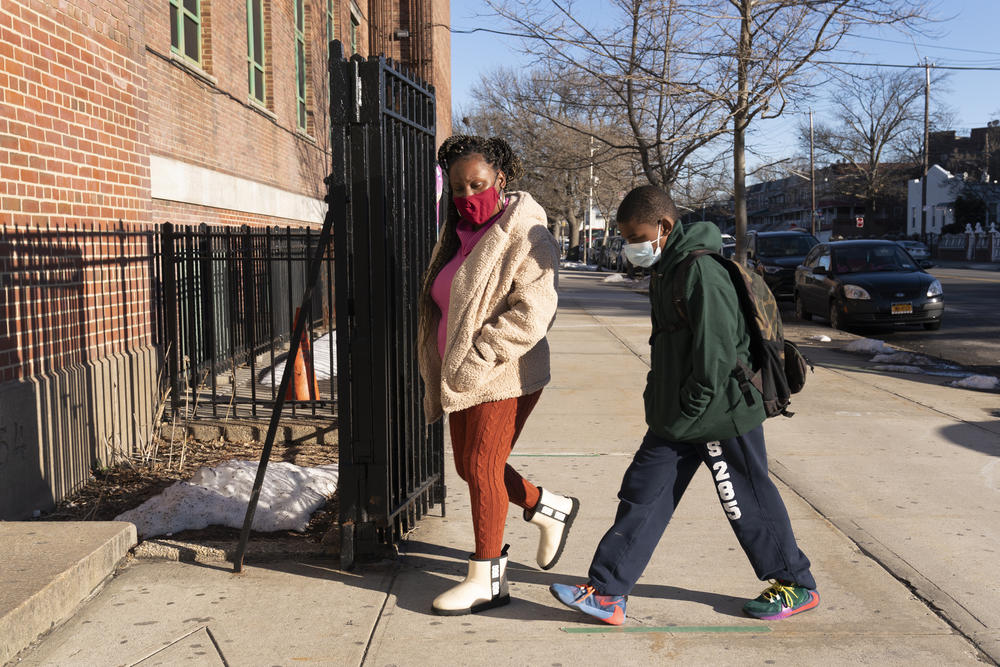
Caption
A student is accompanied by his mother as he enters Meyer Levin Middle School, Thursday, Feb. 25, 2021, in New York. From work to education to home life, women have borne the burden of the pandemic, according to experts.
Credit: Mark Lennihan, AP




